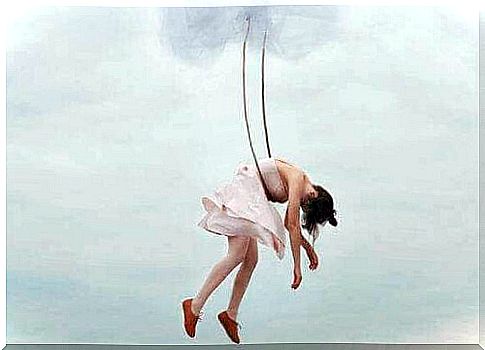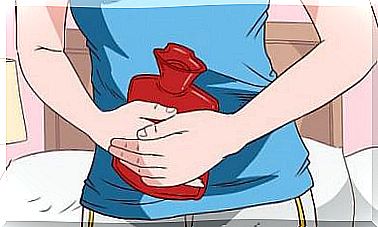What Are The Symptoms Of Dizziness?

Dizziness is a complex emotion to describe. The symptoms of dizziness are numerous. It’s about perception of movement, and it feels as if everything is revolving around inside the head. The word comes from Latin, where “vertere” means to turn.
Dizziness is one of the most common reasons for going to the doctor. In fact, it is estimated that about 40% of people over 40 go to the doctor for this reason.
The feeling usually relates to a change in the balance system. This system is called the vestibular system and it sits in the inner part of the ear. The ailments associated with this organ are very common and can occur at any age.
In this article, we will therefore explain everything you need to know about dizziness and what symptoms usually accompany it. It is important to know these symptoms, because it is a difficult feeling to describe and diagnose.
What is dizziness?
The inner ear contains the vestibular system, which is what allows people to keep their balance. In addition, it is also responsible for ensuring that we are aware of our posture and proper adaptation to the environment around us.
Most cases of dizziness are usually caused by a change in this system. It involves capturing a sense of movement of ourselves or our surroundings without there really being anything moving. Some people perceive it as “falling into infinity”.

It is a disorder that can affect anyone at any age. As we have already mentioned, however, it becomes much more common when one is 40. Dizziness can be classified into different types:
- Peripheral dizziness: The change in the vestibular system produces this. It is the most common type, and typically lesions in the ear cause it. It is therefore common for these people to also experience hearing loss.
- Central dizziness: What happens here is that the nerves that carry information from the ear and interpret it are damaged. This interpretation takes place in the brain stem.
- Positional: This happens in the form of short episodes. It is a reaction to a change in the position of the head and is usually benign.
- Cervical: This is produced by a change in cervical vertebrae.
There are so many types of dizziness because the function of balance and posture follows a complex nervous system in which many parts of the body are involved. However, all types produce the same complex sense of movement.
What other symptoms accompany dizziness?
In addition to perceiving that everything around you is spinning around, there are a number of other symptoms that typically accompany dizziness. For example, nausea and vomiting are very common. Likewise, people who suffer from it usually lose their balance and fall.
Depending on the type of dizziness, some symptoms are more frequent than others. In the case of peripheral dizziness, there is usually decreased hearing, as we have mentioned. You can also hear a constant ringing in your ears.
In other cases of dizziness, vision may change. Many people see twice and cannot focus properly. There are even some people who lose the ability to speak correctly.
On the other hand, dizziness may be accompanied by paralysis of the muscles of the face and a feeling of exhaustion and weakness in the legs. People who suffer from it usually feel anxious and restless due to the fact that it can become difficult just to walk or move.
It is important to emphasize that although many cases of dizziness occur in the form of short episodes, they can last for several days. In addition, it can happen to both children and adults.

How to diagnose and treat this problem
In order to diagnose dizziness , the most important thing is to explain clearly to the doctor how it feels. It is also necessary to describe the rest of the symptoms that appear.
Usually, the ear doctor is the one who is responsible for performing an examination of the ear and the rest of the balance system. Depending on the cause of dizziness, treatment will vary. To be able to treat it there are drugs and even surgery. However, each individual case is different.
When experiencing the feeling of dizziness, one should ideally go to the doctor. One should also go to the doctor if one shows any of the accompanying symptoms that we have mentioned. It is a complex disorder that can have different causes, so it is necessary to study it thoroughly.









